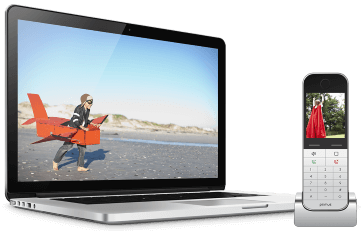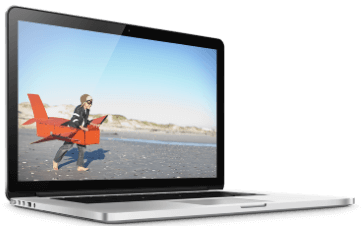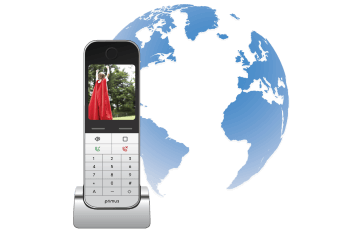Brought to you by Primus - a smart choice for your Internet and Home Phone services.

A laptop is valuable not just because of the actual price tag but because it contains so much sensitive information – not to mention all the things it allows you to do (work, study, connect with people). So make sure to protect your laptop and yourself with these tips.
Get a Case
Protect your laptop from some (but not all) physical damage with a case. You can get the kind that snaps on around your laptop, and you can also get a separate travelling case (or sleeve) that further protects your laptop while it’s in your bag.
Check Your Warranty
If you damage your laptop while travelling, are you covered? Be sure not only to check your device manufacturer’s warranty, but also any travel insurance you buy—or maybe already have through your credit card.
Beware Cheap Replacements
Are you replacing a laptop in a different country and find a deal that seems too good to be true? Well, it is too good to be true. Your replacement laptop could be a knockoff, stolen, or come with pre-installed malware.
Double-Check Power Requirements
Don’t be the person who plugs in their 110v laptop into a 220v outlet in Singapore and fries the thing. Be sure to have a transformer and that you’re aware of the power requirements before you travel.
Back Everything Up
We’ll never not recommend backing everything up. It’s boring but be sure you back everything up before you travel—just in case.
Back Up While Travelling
Oh, and make sure you have a backup plan while you’re travelling, since you’re presumably doing work you don’t want to lose. A small portable hard drive is one option, while cloud backup is another.
Beware Customs
Will customs (or security) officials make you open your laptop so they can look around in it? Probably not, but know it can happen and plan accordingly.
Plan Your Password Protections
Laptops make great targets for theft. But what would be worse than having your laptop stolen? If thieves can access what’s on your laptop without having to input a password and find out that they can sign into banking, email, shopping, and other key apps or sites thanks to you staying signed in, asking your browser to remember your passwords, or keeping your passwords in a document labelled “passwords.”
So make sure you don’t save passwords on your computer. Sign out of things. Enable two-factor authentication. Just think about how much you stand to lose from some thief breaking into your email account.
Consider Tracking
Be sure to turn on your Find My Device or your operating system’s equivalent. You could also put an Air Tag in your laptop case. If you’re a university student, see if your university has a laptop tracking program. Typically these are operated by your university police, and they’ll affix a barcode to your laptop.
Use a VPN
Public Wi-Fi is dangerous. Compromised devices connect to it all the time, and bad actors target public Wi-Fi to push malware and compromise yet more devices. Protect yourself with a VPN.
Enable Hard Drive Encryption
If you can’t remove sensitive files before travelling, the next best thing is to encrypt your hard drive. Programs such as BitLocker and FileVault make this easy.
Think Twice Before Using Your Laptop on a Plane
Picture this: you have your laptop out and on your tray table. You’re typing away. Then the guy in front of you reclines his seat and breaks your laptop screen. Yes, it can happen. No, there isn’t anything you can do about it.
Consider a Travel Laptop
By definition, laptops are built to be portable. But international travel can be a whole other ballgame, so one option is to get an inexpensive laptop (such as one of those $300 Chromebooks) and access your work files and apps remotely. While not a great option for everyone, this might be the best solution if you’re a businessperson and need access to a lot of sensitive data. You’ll still need to use a VPN, though.






